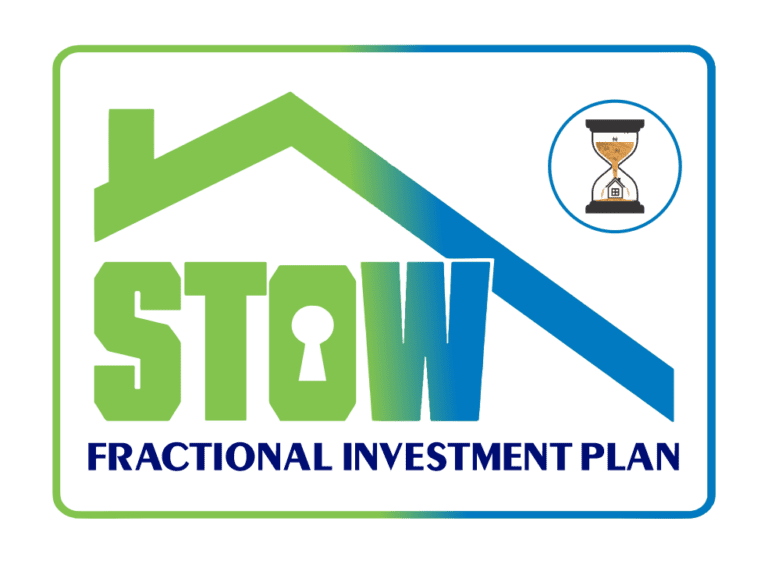Pros and Cons of Investing in Real Estate in Nigeria: All You Need To Know
Umaru Hassan
Real estate investment is a hot topic around the world, and Nigeria is no exception. With a growing population and a burgeoning middle class, the real estate market in Nigeria is becoming increasingly attractive to both local and foreign investors. However, like any investment opportunity, real estate in Nigeria comes with its own set of pros and cons that must be carefully considered before taking the plunge. Whether you’re a seasoned investor or just starting, it’s essential to understand the benefits and drawbacks of investing in Nigerian real estate before making a decision that could have a significant impact on your financial future. In this blog post, we’ll explore the pros and cons of investing in real estate in Nigeria, so you can make an informed decision about whether this lucrative market is right for you.
Pros of Investing in Real Estate in Nigeria
- Steady Income Stream
- Tangible Asset
- Long-term Appreciation
- Tax Benefits
1. Steady Income Stream
One of the significant benefits of investing in real estate in Nigeria is the steady income stream it provides. Rental income from real estate can provide a consistent source of cash flow that can last for years. The demand for quality housing is high in Nigeria, and this provides investors with a constant pool of potential tenants.
2. Tangible Asset
Another advantage of investing in real estate is that it provides investors with a tangible asset. Unlike stocks or mutual funds, which are intangible assets, real estate investment provides investors with a physical property that they can touch, see, and feel.
3. Long-Term Appreciation
Real estate investment in Nigeria offers a long-term appreciation. The value of properties in Nigeria has been known to increase significantly over time. Investing in real estate provides investors with an opportunity to benefit from the capital appreciation of their properties.
Related: Risks associated with investing in real estate in Nigeria and mitigations
Related: Properties in High Demand in the Nigerian Real Estate Market
4. Tax Benefits
Real estate investment in Nigeria comes with several tax benefits. Investors can claim deductions on their mortgage interest, property taxes, repairs, and depreciation. These deductions can significantly reduce an investor’s tax liability and increase their net profit.
Related: 10 mistakes to avoid when investing in real estate
Top 15 Locations for Real Estate Investment in Lagos
Cons of Investing in Real Estate in Nigeria
- High Initial Investment
- Lack of Liquidity
- Property Management Challenges
- Economic and Political Risk
Related: The Top 9 Real Estate Investment Apps in Nigeria
Top Financing Options for Buying a House in Nigeria
1. High Initial Investment
One of the main challenges of investing in real estate in Nigeria is the high initial investment required. Property prices in major cities like Lagos, Abuja, and Port Harcourt can be quite steep, and investors may require significant capital to purchase a property.
2. Lack of Liquidity
Real estate investment in Nigeria is not a very liquid investment option. Unlike stocks, which can be bought and sold almost instantly, selling a property can take a long time. The real estate market in Nigeria can also be volatile, and investors may find it challenging to find buyers for their properties during economic downturns.
3. Property Management Challenges
Real estate investment in Nigeria also comes with property management challenges. Investors may face difficulties managing their properties, finding reliable tenants, and dealing with property maintenance issues.
4. Economic and Political Risk
Investing in real estate in Nigeria comes with economic and political risks. Economic and political uncertainties can significantly impact the real estate market. Unstable economic conditions or political unrest can lead to a decline in property values and a reduction in demand.
Related: How to Invest in Real Estate with Little to No Money
7 Factors to consider before investing in real estate in Nigeria
Factors to Consider Before Investing in Real Estate in Nigeria
- Location
- Market Trends
- Property Type
- Financing Options
Location
The location of the property is a crucial factor to consider before investing in real estate in Nigeria. Properties in high-demand areas are likely to appreciate more than those in low-demand areas.
Market Trends
Investors should also consider the current market trends before investing in real estate. Understanding market trends can help investors make informed investment decisions and ensure they invest in properties that are likely to appreciate.
Property Type
The type of property is also an essential factor to consider. Residential properties, commercial properties, and industrial properties all come with their unique risks and rewards. Investors should consider the type of property that best aligns with their investment goals.
Financing Options
Investors should also consider the financing options available to them. Real estate investment requires significant capital, and most investors may require financing to purchase a property. Investors should explore their financing options and choose the option that best aligns with their investment goals.
Related: 10 Amazing Benefits Of Investing In Real Estate in Nigeria
All you need to know about diversifying your real estate portfolio
Is Real Estate Investment in Nigeria Right for You?
In conclusion, investing in real estate in Nigeria can be a smart financial decision for those who are willing to do their due diligence and carefully weigh the pros and cons. While the potential for high returns is certainly attractive, it’s important to remember that the Nigerian real estate market has challenges. From the high cost of construction materials to the legal complexities of property ownership, there are several factors that can impact your bottom line.
That being said, for those who are willing to put in the time and effort to navigate these challenges, real estate investment in Nigeria can be an excellent way to build long-term wealth and secure your financial future. By leveraging the unique opportunities that this market has to offer, you can create a diversified investment portfolio that can weather the ups and downs of the economy and provide a steady stream of income for years to come.

So if you’re ready to take the next step and start investing in Nigerian real estate, now is the time to act.
The STOW Fractional Plan simplifies and reduces the cost of investing in select real estate properties and delivers guaranteed returns and capital gains on investment within a defined period. The STOW Fractional Plan provides a 10% annualized yield and a guaranteed 10% – 20% capital gain between two (2) – four (4) years on select properties. Click here to get started.
With the market showing promising signs of growth and increasing demand for high-quality properties, there has never been a better time to start building your real estate investment portfolio. So take the plunge, research, and start reaping the rewards of this exciting and lucrative investment opportunity today.
Related blog posts: Unlocking Real Estate Investment Opportunities in Lagos Nigeria

[…] Read more about the Pros and Cons of Investing in Real Estate in Nigeria. […]
[…] Related: The pros and cons of investing in real estate in Nigeria […]
[…] Related: Pros and Cons of Investing in Real Estate in Nigeria […]
[…] Related: Pros and Cons of Investing in Real Estate in Nigeria […]
[…] Related: Pros and Cons of Investing in Real Estate in Nigeria […]
[…] Related: Pros and Cons of Investing in Real Estate in Nigeria […]
[…] Related: Pros and Cons of Investing in Real Estate in Nigeria […]
[…] Related: Pros and Cons of Investing in Real Estate in Nigeria […]
[…] Related: Pros and Cons of Investing in Real Estate in Nigeria […]
[…] Pros and Cons of Investing in Real Estate in Nigeria […]
[…] Pros and Cons of Investing in Real Estate in Nigeria […]
[…] Nigerian real estate market is multiplying. This is due to the increasing population, economic growth, and Urbanization. The market is expected to continue to grow in the future. There are many opportunities for […]
[…] why people in Nigeria would want to purchase real estate. A couple of the main ones are that property prices in Nigeria have been on a steady rise for the past few years, and there is a growing demand for residential […]